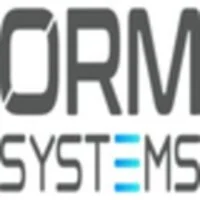
Introduction:
In an era defined by sustainability and innovation, industries are increasingly turning to solar energy solutions to power their operations. From reducing carbon footprints to cutting energy costs, solar technology offers a myriad of benefits for businesses across diverse sectors. In this context, we explore the transformative potential of solar solutions for industries and the compelling advantages they bring to the table.
Harnessing Solar Power:
The adoption of solar solutions in industrial settings marks a paradigm shift in energy sourcing and consumption. By harnessing the abundant energy of the sun, industries can reduce their reliance on fossil fuels and contribute to a greener and more sustainable future. Solar technology offers a clean, renewable, and cost-effective alternative to traditional energy sources, making it an attractive proposition for forward-thinking businesses.
Driving Sustainability:
At the heart of solar solutions for industries lies a commitment to sustainability. By investing in solar infrastructure, businesses can significantly reduce their carbon emissions and environmental impact. This not only aligns with corporate social responsibility goals but also positions companies as leaders in the global transition towards a low-carbon economy. Solar-powered industries pave the way for a more sustainable future, where economic growth is decoupled from environmental degradation.
Cost-Efficiency and Long-Term Savings:
Beyond its environmental benefits, solar energy presents a compelling economic case for industries. While the initial investment in solar infrastructure may seem substantial, the long-term savings are undeniable. Solar panels have a lifespan of 25 years or more, offering a reliable and predictable source of energy with minimal maintenance costs. Moreover, with advancements in technology and declining solar panel prices, the return on investment for solar projects continues to improve, making it an increasingly attractive option for businesses looking to reduce operating expenses.
Energy Independence and Resilience:
One of the key advantages of solar solutions for industries is the ability to achieve energy independence. By generating their own electricity on-site, businesses can mitigate the risks associated with volatile energy markets and fluctuating utility prices. This not only enhances financial stability but also ensures uninterrupted power supply, critical for industries reliant on continuous operations. Solar-powered industries are better equipped to withstand disruptions, whether due to grid outages or geopolitical uncertainties, thereby enhancing resilience and competitiveness.
Driving Innovation and Technological Advancement:
The adoption of solar solutions fosters a culture of innovation and technological advancement within industries. From optimizing energy storage systems to integrating smart grid technologies, businesses are constantly exploring new ways to maximize the efficiency and effectiveness of solar infrastructure. This spirit of innovation not only drives operational improvements but also positions industries at the forefront of the clean energy revolution, opening up new opportunities for growth and market leadership.
Optimizing Energy Consumption through Solar Integration:
Industries are increasingly recognizing the value of integrating solar solutions into their energy management strategies to optimize consumption patterns. By strategically deploying solar panels in combination with energy-efficient technologies and smart controls, businesses can maximize the utilization of solar-generated electricity while minimizing wastage. This approach not only reduces dependency on grid electricity but also allows industries to tailor their energy usage to match solar generation peaks, thereby further enhancing cost savings and sustainability. Additionally, advanced monitoring and analytics tools enable industries to gain insights into energy consumption patterns, identify areas for improvement, and fine-tune their operations for maximum efficiency. Through proactive energy management and solar integration, industries can unlock significant value while advancing their sustainability goals.
Enhancing Environmental Performance with Solar-Powered Operations:
The transition to solar-powered operations presents industries with an unprecedented opportunity to enhance their environmental performance and reduce their ecological footprint. Solar energy is inherently clean and renewable, emitting no greenhouse gases or pollutants during electricity generation. By switching to solar power, industries can significantly lower their carbon emissions, contributing to global efforts to combat climate change and air pollution. Moreover, the adoption of solar solutions can help industries meet regulatory requirements, comply with sustainability standards, and strengthen their reputation as responsible corporate citizens. From manufacturing plants to warehouses and office buildings, every facet of industrial operations stands to benefit from the environmental advantages of solar energy, paving the way for a more sustainable future for generations to come.
Empowering Industrial Resilience through Solar Microgrids:
In an era marked by increasing energy uncertainty and the growing threat of natural disasters, industrial resilience has become a top priority for businesses worldwide. Solar microgrids offer a compelling solution by providing decentralized and self-sustaining energy systems that can operate independently of the main power grid. By incorporating energy storage technologies such as batteries, industries can store excess solar energy during periods of high generation and deploy it during times of low sunlight or grid outages. This not only enhances energy reliability and security but also reduces the risk of production downtime and revenue loss. Furthermore, solar microgrids offer flexibility and scalability, allowing industries to expand their operations seamlessly while maintaining a high level of resilience. As the backbone of industrial operations, solar microgrids empower businesses to weather the storms of uncertainty and emerge stronger and more resilient in the face of adversity.
Conclusion:
As industries navigate the challenges of a rapidly changing world, solar solutions emerge as a beacon of hope and opportunity. By embracing solar energy, businesses can simultaneously drive sustainability, reduce costs, enhance resilience, and foster innovation. As we look towards a future powered by clean and renewable sources, industries play a pivotal role in shaping a world where economic prosperity goes hand in hand with environmental stewardship. The time to embrace solar solutions is now, and the benefits are boundless for industries willing to seize the opportunity.











